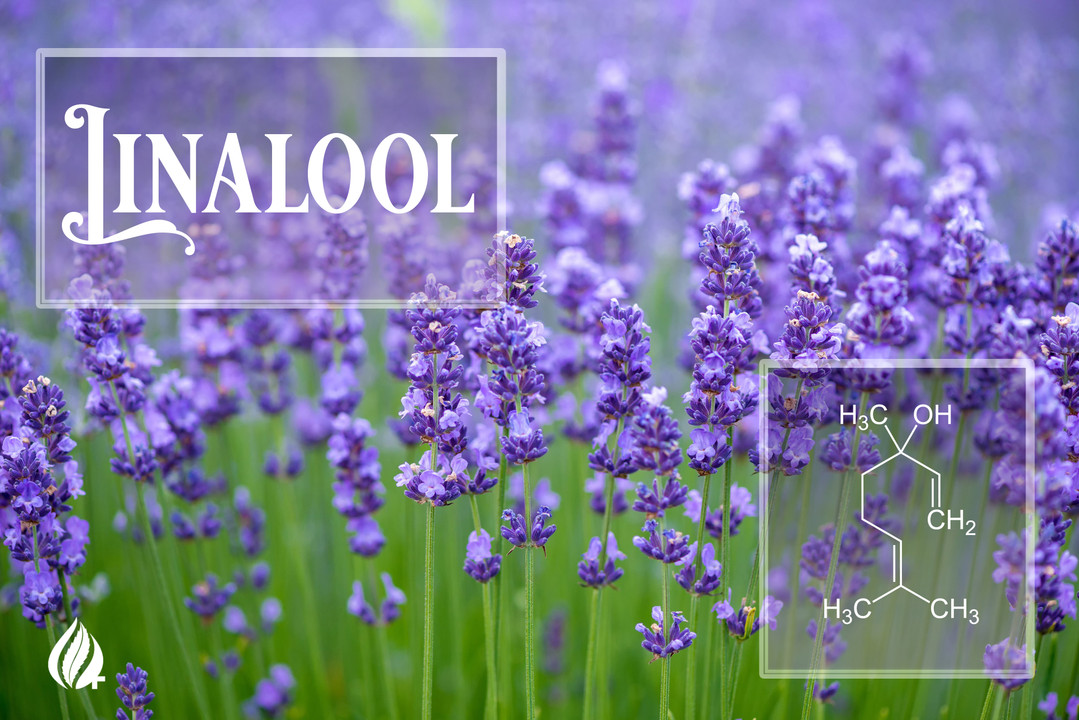Terpene Tuesday : Linalool
Welcome back to Terpene Tuesday, where we highlight a new terpene and its benefits every week. We've mentioned linalool before but let's dive a little deeper this time. Linalool is one of my personal favorites. If you've smelled lavender, then you'll know linalool. It is responsible for that deeply floral and slightly spicy scent. It can also be found in birch trees, the mint family, citrus fruits, laurels, cinnamon, rosewood, coriander, sweet basil and even fungi.
There are two forms of Linalool, both found in nature. (S)-(+)-Linalool is called ‘licareol’ and (R)-(-)-Linalool is called ‘coriandrol.’ Both compounds elicit separate neural pathways in the brain and so therefore are categorized as having distinct scents. The former being floral and the latter more woodsy and peppery.
Linilool has been in use for many purposes for hundreds, if not thousands of years. Its anti-microbial qualities and scent make it popular for cleaning products and it is commercially used in pesticides. But by and far, its most popular use is in health and beauty products. Linilool, with its distinctive lavender scent is added to perfumes and body sprays, air deodorizers and just about anywhere you’ll find the need for a pleasing aroma.
However, its natural relaxing effects are its most renowned qualities which in turn render it with many therapeutic benefits. Linalool has shown to have positive benefits on depression, insomnia, certain forms of epilepsy and anxiety. This is due to its many pathways in the central nervous system. Linalool helps to block the primary excitatory molecule in the brain, glutamate, possibly helping to control certain forms of epilepsy. It also helps block acetylcholine, which controls muscle contractions and can help with spasms. Studies show that when exposed to linalool vapors, mice exhibit less depression-like behavior and will work harder to escape a seemingly dire situation. Linalool can also help boost the immune system by inhibiting the detrimental while blood cell shift commonly seen when we’re under stress, as seen in a study on rats.
Linalool is a very promising terpene and its effects have been documented for centuries. As science catches up, we’re sure to learn far more interesting things about this delightful, little terpene.
Sources:
https://en.wikipedia.org/wiki/Linalool
https://www.leafly.com/news/science-tech/linalool-cannabis-terpene-benefits
Advice & articles
-
Embracing Fall: Harvest Time, Festivals, and the Benefits of Hemp and THCA
Oct 6th 2025As the leaves turn vibrant shades of orange and gold, and the air becomes crisp, fall invites us to
-
Summer Cannabis Vibes
Jul 21st 2025Chill Vibes Only: How Smoking Cannabis Can Help You Relax This Summer There’s something magical abou
-
Veterans and Holistic Healing
May 31st 2024Military and wellness are two concepts that may seem contradictory at first glance, but they are int
- Read more articles




